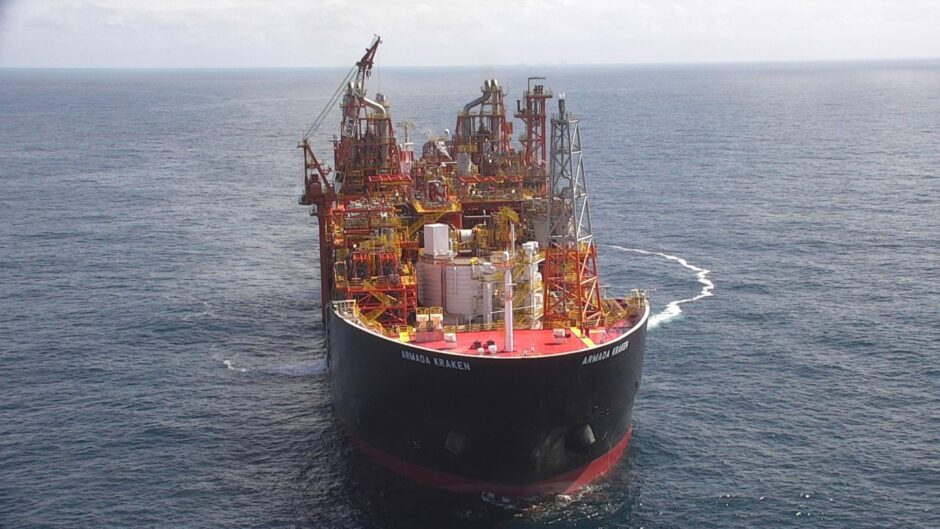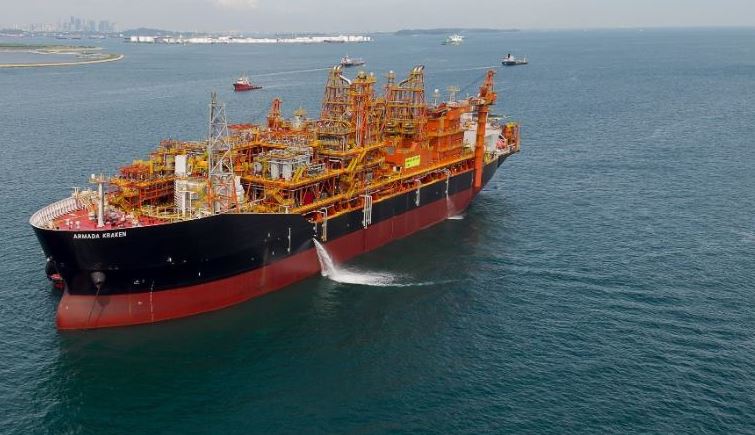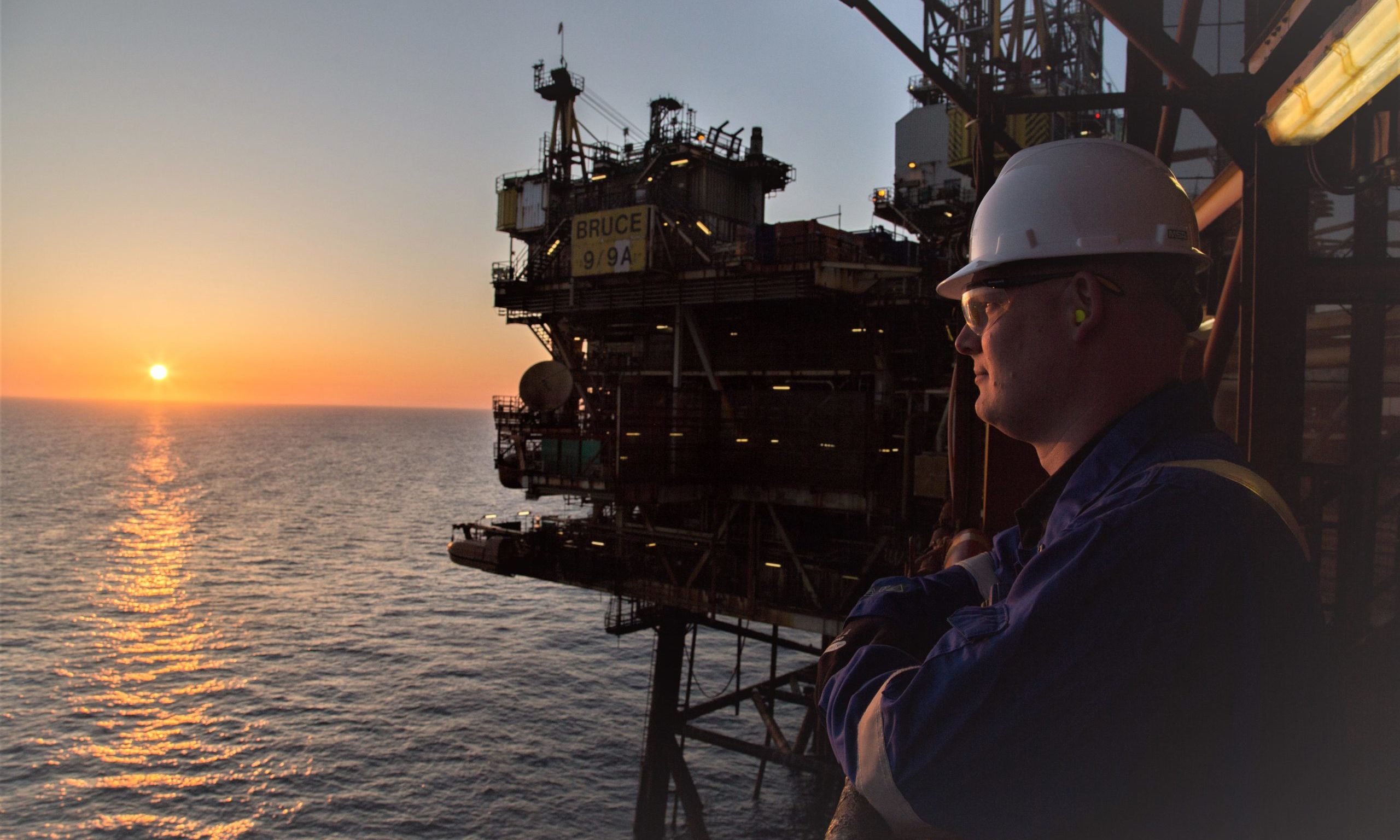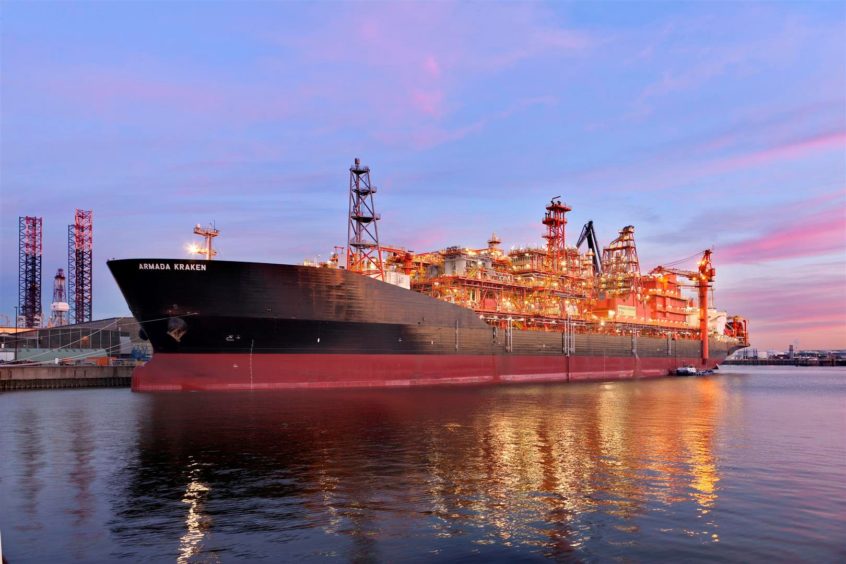
A vessel owner has been ordered to up its game after a raft of issues related to the monitoring and managing of alarms were uncovered on a North Sea ship.
Inspectors found a lack of suitable measures on the Kraken FPSO to ensure all high priority warnings, including fire and gas detection, were acted upon swiftly in order to prevent a “major accident”.
Almost 1,000 standing alarms – those that are active even though operations are carrying on as usual – were also identified.
Of those, a “significant proportion”, almost 10%, were priority one alarms, nearly double the recommended guidance.
The Health and Safety Executive (HSE) has hit Malaysia-based Bumi Armada UK, the owner of Kraken, with an improvement notice as a result of the findings.
It has until May 31, 2023, to comply.
Kraken has served the namesake EnQuest (LON: ENQ) North Sea oilfield, around 220 miles from Aberdeen, since 2017.
In a statement, an HSE inspector said: “During my offshore inspection onboard Armada Kraken FPSO between 12 and 14 July 2022, you have failed to demonstrate that there were appropriate arrangements to monitor and manage alarms that are presented in your control room to ensure that all high priority alarms such as fire and gas detection alarms are acted upon in a timely manner by the control room operators (CROs) in order to prevent a major accident from occurring.”
Standing alarms a recurring issue
The assessor uncovered more than 900 standing alarms, “significantly” more than the 5 set out by industry guidance.
As of July 16, 9.7% of those alarms were of the highest priority, rather than the 5% recommended.
In response to the improvement notice, a spokesman for Bumi Armada UK said: “All safety critical systems on the Armada Kraken FPSO remain operational and effective as per its design philosophy. During a recent planned shutdown, and in accordance with our planned maintenance routines, all shutdown functionality has been tested and verified; as such we remain diligent in our approach to the monitoring and control of potential hazards.
“The standing alarms cited in the notice from the HSE are regarded as commercially critical however they have no impact on, or relationship to, our safety-critical systems. While such standing alarms do not have any effect on our ability to operate safely, Bumi Armada UK Ltd is committed to the continuous improvement of its operations.”
It is not the first time HSE has flagged the issue, after the watchdog wrote to Bumi about “deficiencies in standing alarm rates” following an inspection in 2018.
At the time, the offshore energy facilities contractor committed to a “4-stage programme of alarm system improvement”, but as of yet, only one of those has been applied.

The HSE said: “Process CROs are purposely not acknowledging alarms due to configuration problems. As such there were multiple ‘silenced’ but ‘unacknowledged’ alarms which are ‘blinking / flashing’ across all human machine interface (HMI) screens.
“This was distracting to CROs and could serve to ‘mask’ new alarms which were arising in the HMI. Essentially, CROs were circumventing aspects of the alarm system due to multiple instances of poor alarm configurations.”
A lack of “dedicated alarm list”, which could lead to workers failing to spot important warnings, was also highlighted.
The HSE added: “Based on current system performance it is foreseeable that critical process alarms, including those relating to the fire and gas system, and which are necessary for the effective control of Major Accident Hazards (MAHs), could be missed or incorrectly actioned by the CROs.”
A spokesman for Bumi Armada said: “We fully acknowledge the notice from the HSE and continue to progress, ahead of schedule, the agreed alarm management plan (as presented to the regulator) to comply with the improvement of our operations.”
EnQuest declined to comment.
Recommended for you


